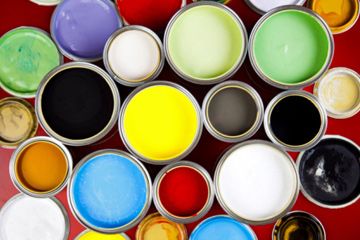These days, homeowners are making more of a move than ever before to rid their homes of harmful chemicals. Volatile organic compounds (VOCs) are toxic chemicals that are emitted from a variety of household products and materials. Everything from house paint to that new couch you just unwrapped will contain levels of these chemicals.
How long it takes these products to "off-gas" depends on how many VOCs they contain, as well as how much you're able to ventilate your home after bringing these materials inside. Paint and paint stripper are a couple of the more common places you'll find VOCs and thankfully, they're also some of the easiest to avoid.
Advertisement
Once your walls are painted, the VOCs are released into the air as the wall dries, and then for a period afterward as well. There are no hard numbers for a painted room, but newly constructed homes that don't use low-VOC products and materials have shown high-VOC levels for many months after construction is completed. The trick for the homeowner is to avoid these VOCs to begin with.
If you're in the market for some paint, then seek out low- or no-VOC paint options. These are going to cost a little more than your standard house paint, but if you're interested in clean air for you and your family, then it's worth it. A lot of municipalities will waive disposal fees for this type of paint can, too, so there's another saving for your wallet. Studies have shown that VOC emissions can be especially bad for people with compromised immune systems, as well as children and the elderly.
Paint manufacturers are required to print the amount of VOCs on the paint can itself, so a little sleuthing at your local paint store will go a long way. The U.S. government now limits the amount of VOCs to 250 grams per liter for flat finishes and 380 for glossy finishes. Individual states may have lower limits as well. The state of California leads the way, as usual, with limits of 50 grams per liter. Keep in mind when you're checking out the paint can, that they list the VOCs for the paint only, not the pigment added to make your favorite shade of pink. If you want to get a more accurate number, ask your paint store employee about pigment levels and factor that in.
Advertisement


